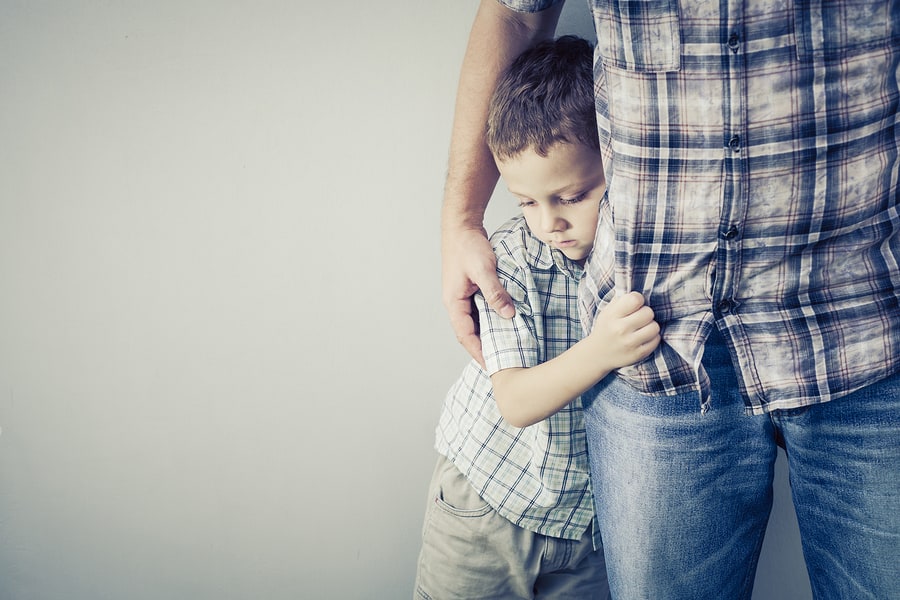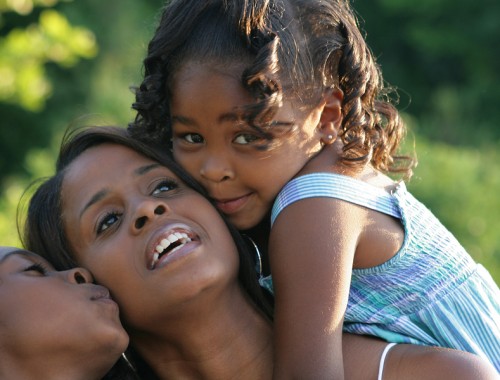My son recently turned six. He is many things, both good and bad, but an easy child is not one of them. Someone once asked me to describe him at a party and I was at a loss. I eventually settled on “complicated,” which got some laughs (he was only 2.5 at the time), but I could not find the words to sum him up using only a few basic character traits.
Labels are everywhere. Every disability you can imagine, every ability too. Every skill, every problem, everything we are—neatly named, categorized, and filed away.
Here’s one you may be unfamiliar with: Highly Sensitive. Yes, it’s an actual thing and, for us, this diagnosis…this discovery that there was a name for what we’d been experiencing—it was life-changing.
My son has wonderful characteristics. He has a fantastic sense of humour and an ear for music, words, and numbers. His memory is so good it startles me. From a young age, he has been observant and asks thought-provoking questions.
And he also has traits that make him different, often more challenging, than a lot of children. He does not enjoy praise or too much attention. New situations, places, and people throw him for a loop. He can turn on you on a dime, especially if he senses any negative emotions. He used to suffer from extreme separation anxiety, and still exhibits some of that. He is also physically sensitive—tags on his clothes, seams in his socks, strong smells, new tastes, and textures bother him like crazy.
Some of these situations are obviously unavoidable in daily life, and this leads to intense meltdowns. When my son was a toddler my husband and I were at a loss about what to do. We knew there would be situations where he would be the centre of attention. We knew he would eventually have to eat more than his selection of five foods. One of the hardest issues was that we hadn’t met any other kids with characteristics that were similar to his—had we done something wrong? Had we encouraged this challenging behaviour?
Then I read The Highly Sensitive Child, by Elaine N. Aron. Within the first 3 pages, I knew I had stumbled upon something life-changing. It was like I was reading a description of my son, almost verbatim.
Aron, the leading psychologist in the area, calls children like my son “highly sensitive”. She does not pathologize sensitivity, but does recognize that about 15-20% of people in the world can legitimately be categorized this way.
How does she define it?
High Sensitivity does not simply mean “gets feelings hurt easily,” though surely these children are acutely aware of teasing. According to Dr. Aron’s definition, “the highly sensitive person (HSP) has a sensitive nervous system, is aware of subtleties in his/her surroundings, and is therefore more easily overwhelmed when in a highly stimulating environment.” Bingo!
A key quality of high sensitivity, according to Arons, “compared to the 80% without the trait, they process everything around them much more—reflect on it, elaborate on it, make associations. When this processing is not fully conscious, it surfaces as intuition.”
She goes on to say that highly sensitive people are also usually conscientious, perceptive people. I often feel like they possess that “old soul” quality from a young age. They have strong, deeply felt reactions to situations that would barely register in less sensitive people. It feels like even young children can read your mind.
The challenges these interesting children face can make parenting hard, however. Their perfectionism can quickly lead to meltdowns and outbursts. They are easily overwhelmed and overstimulated, and therefore need a lot of down time. They prefer to observe new situations rather than dive right in. I know firsthand these behaviours can be difficult for parents to understand and sort out with a young child.
How does someone become highly sensitive?
Aron sees high sensitivity as an innate, inherited temperament. Look in the mirror or at your spouse– might one of you posses these same characteristics? Both my spouse and I fit the bill; at least one of our children was bound to inherit the trait. I just hadn’t known there was a definition of it, and I certainly didn’t know how it manifested in toddlers and preschoolers.
The Benefit of a Label
When we recognize its validity and respect the highly sensitive children’s wishes (within reason), they really do blossom. Their parents (and teachers and caregivers) can better appreciate and understand them. For example, gentle correction for misbehavior is usually more effective than punishment, as criticism makes these children crumble and unable to focus on the issue at hand. Allowing them to take their time getting involved in new situations rather than forcing them to jump right in. Role playing before beginning a new activity (say, a playdate, a camp, a sport) can be remarkably helpful.
Every Child is Unique
Of course, whatever label we use to help describe a child, it’s important to remember that not everyone with that particular label is a mirror image of each other. Everyone is unique, and high sensitivity is just one of the many personality traits people can possess.
My son has never, and will probably never be, easy to parent. I love channeling Aron’s mantra in times when I feel myself losing my patience: “To have an exceptional child, you must be willing to have an exceptional child.” He may not be easy, but he is truly exceptional. I hope to be the parent he deserves as he learns to navigate an often overwhelming world.




This the most sensitive rendition of ‘highly sensitive ‘- my son is too! The characteristics match startlingly and this brings me hope , relief and most importantly the reminder to be patient. Very well written:)